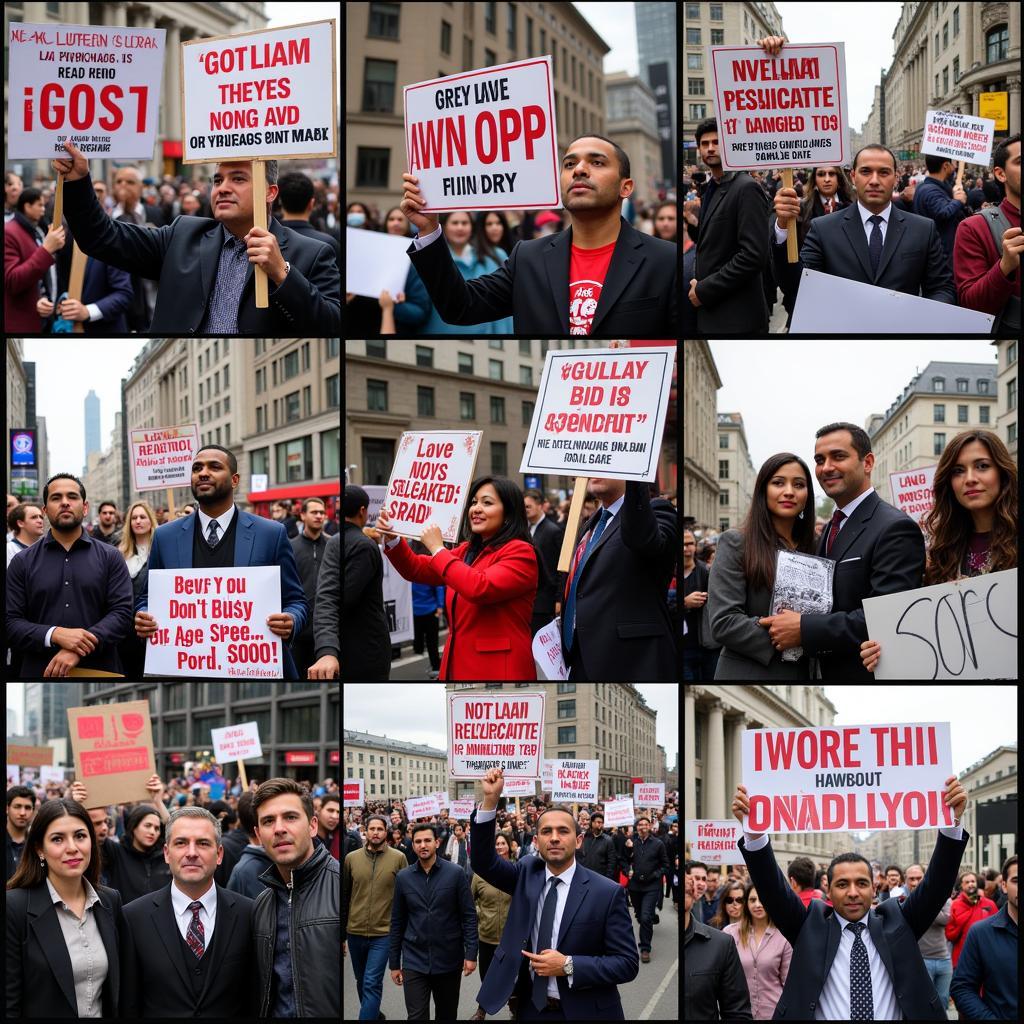Martin Luther King Jr.’s “I Have a Dream” speech, delivered on August 28, 1963, during the March on Washington for Jobs and Freedom, resonated deeply within American society and continues to inspire movements for social justice globally. The speech became a pivotal moment in the Civil Rights Movement, galvanizing support for equality and leaving an enduring legacy. How Did The I Have A Dream Speech Impact Society? Let’s explore its profound and lasting effects.
The Immediate Impact of “I Have a Dream”
The speech’s immediate impact was undeniable. Broadcast live to millions across the nation, King’s powerful words and captivating delivery transfixed audiences. He eloquently articulated the struggles faced by African Americans, painting a vivid picture of racial injustice while offering a message of hope and nonviolent resistance. This message resonated particularly well with the younger generation, many of whom joined the fight for equality inspired by King’s words. The speech instantly elevated King to a position of moral leadership, strengthening the Civil Rights Movement and putting immense pressure on the government to act.
Legislative Changes and Civil Rights Advancements
The “I Have a Dream” speech played a crucial role in propelling the passage of landmark legislation. The Civil Rights Act of 1964, outlawing discrimination based on race, color, religion, sex, or national origin, and the Voting Rights Act of 1965, aimed at overcoming legal barriers at the state and local levels that prevented African Americans from exercising their right to vote, were both significantly influenced by the growing public support for equality spurred by King’s powerful rhetoric. How did the I Have a Dream speech impact society? It served as a catalyst for legal and political change, dismantling segregation and empowering African Americans to participate fully in American democracy.
The momentum generated by the speech also contributed to advancements in other areas, such as education and housing. Desegregation efforts gained traction, opening doors for African American students to access better educational opportunities.
A Global Inspiration for Social Justice
The impact of “I Have a Dream” extended far beyond the borders of the United States. King’s message of nonviolent resistance and his eloquent articulation of universal human rights resonated with marginalized communities around the world. The speech became a rallying cry for those fighting against oppression and injustice, inspiring movements for social change in South Africa during apartheid, in Eastern Europe during the fall of communism, and continues to inspire activists today.
 Global impact of the "I Have a Dream" Speech
Global impact of the "I Have a Dream" Speech
How Did the I Have a Dream Speech Impact Society Through its Cultural Influence?
The “I Have a Dream” speech has permeated popular culture, becoming deeply ingrained in the American consciousness. It is taught in schools, referenced in films and music, and continues to be quoted in political discourse. Its enduring presence in the cultural landscape reinforces its message of equality and serves as a constant reminder of the ongoing struggle for social justice.
Dr. Emily Carter, Professor of American History at Georgetown University, notes, “King’s speech transcended the specific context of the Civil Rights Movement to become a timeless expression of the human aspiration for freedom and equality.”
Conclusion: A Living Legacy
How did the I Have a Dream speech impact society? It fundamentally altered the course of American history, contributing to significant legal and social change. More than just a historical artifact, it continues to inspire movements for social justice around the world, reminding us of the power of nonviolent resistance and the enduring dream of a world where all individuals are treated with dignity and respect. King’s words continue to challenge us to strive for a more just and equitable society, a dream that remains relevant and urgent today.
FAQs
- Where did Martin Luther King Jr. deliver the “I Have a Dream” speech? At the Lincoln Memorial in Washington, D.C.
- When was the “I Have a Dream” speech delivered? August 28, 1963.
- What was the purpose of the March on Washington? To advocate for civil and economic rights for African Americans.
- What is the main message of the “I Have a Dream” speech? A call for racial equality and an end to discrimination.
- How did the speech impact the Civil Rights Movement? It galvanized support and helped accelerate legislative change.
- What is the significance of the “I Have a Dream” speech today? It serves as a reminder of the ongoing struggle for social justice and inspires continued action.
- What were some of the key legislative achievements inspired by the speech? The Civil Rights Act of 1964 and the Voting Rights Act of 1965.
For further information on related topics, you might find our articles on the dead poets society trailer helpful.
When needing support, please contact Phone Number: 02043854663, Email: [email protected] Or visit our address: Khu 34, Bac Giang, 260000, Vietnam. We have a 24/7 customer support team.